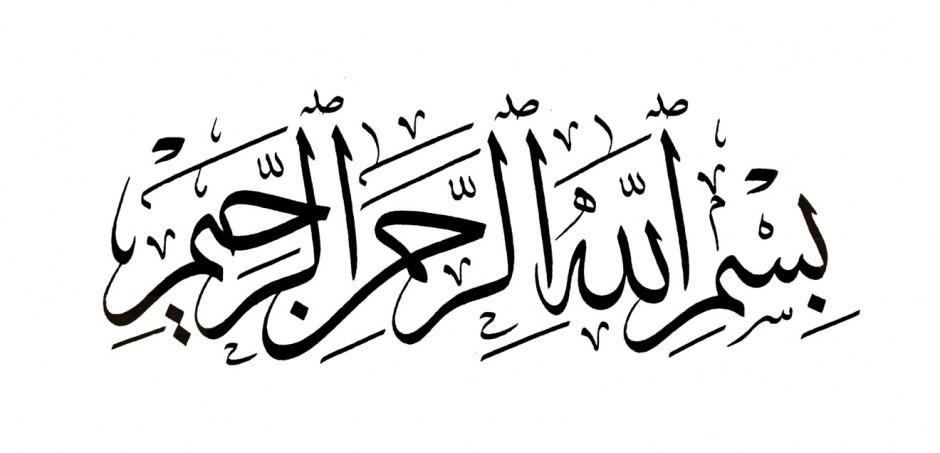Al Malahim Media Institute
Presents:
“The Infallibility of Muslim Blood”
Sheikh Harith bin Ghazi al Nithari
Hafithahullah
In the name of Allah the Most Merciful and Compassionate
“Peace and Allah’s mercy and blessings be upon all of you, and prayers and peace be upon the Messenger of Allah, Muhammad, his family and suhaba (companions) and all his followers.
One of the worst predicaments where a person can’t escape is the unjust shedding of infallible blood. Al Bukhari, quoting Abdallah bin Umar al Khattab, said killing a sanctified Muslim soul or that of a kuffar aside from Allah’s commandment is a major crime the perpetrator of that crime Allah promised to impose severe punishment upon them. The greatest of crimes and worst of sins is, after sharing partners to Allah, is the unjust killing of a mu’mineen (believer). Allah ta’ala said “If a man intentionally kills a believer, his punishment is jahanum (hell), and a horrible penalty is made for him.” (Quran al Karim an Nisa’ 4:93) al Shawkani, yarhimahullah, said in his book “The Prologue of the Almighty” that this degree of severity is unmatched.
As Saidi, yarhimahullah, said while explaining this ayah (verse) that Allah mentioned the fate that awaits the intentional murderer, a fate that makes hearts shiver, souls collapse, and minds become disturbed. Among the great sins, there is no greater punishment greater or even similar to this. Al Bukhari said in his Sahih, quoting bin Umar, may Allah be pleased with them both, the Messenger of Allah said the believer is safe in his imaan (faith) as long as he does not spill infallible blood. Every sin would be forgiven except the sin of a person intentionally killing a believer. The Messenger of Allah, may the blessings and peace of Allah be upon him and his family, said: every sin would be forgiven except that of a dying man as a kuffar or that of a man who intentionally killed a believer. This hadith was narrated by Imam Ahmad and is authentic.
Therefore killing a believer is major in the eyes of Allah ta’ala, greater significance than the end of the world, as the Messenger of Allah said: it is of more significance than the end of the world. The believer needs to be very careful not to spill infallible blood, since it is a major downfall that would wash away all his good deeds.
Imam Muslim narrated, quoting Abu Hurairah, may Allah be pleased with them, that the Messenger of Allah, prayers and peace be upon him, once asked who was considered bankrupt. They said: the bankrupt is the person who has no money or belongings. The Messenger responded and said the bankrupt in the Ummah is the one who appears on judgment day holding his good deeds and his bad deeds. If it turns out he insulted one, struck one, spilled the blood of that person, this will distract from his good deeds. If his good deeds are totally counted before his sins are counted, then he will be thrown into the hellfire.
The believer must avoid participating in shedding infallible blood, even if encouraged to do this by other people. A true believer would hold dear his faith, and fear Allah ta’ala and his punishment. He shouldn’t be a follower imitating whatever others are doing even if they are wrong. But he would take notice and fear the torment of the hellfire. The Messenger of Allah, prayers and peace be upon him, said if the people living in heaven and earth join hands in killing a believer, Allah would put them both in hellfire, as said by al Turmudhi. Being influenced by too many people or too few people does not fix any error committed, it doesn’t make it righteous or false, and it does not save a person from Allah’s wrath. Each person will be held responsible for his own deeds. A day when one would run from his own family, each member will be busy by cleaning his own account. Allah ta’ala said: and everyone of them will come to Him by themselves on the Day of Judgment (Quran al Karim 19:95), which means Allah will judge us each on the last day.
The orders of either the Emir or the commander is not considered a permit to shed infallible blood and won’t be accepted by Allah as an excuse. The person who gives an order like this and the person who fulfills this order will both be put in the hellfire. The Messenger of Allah, prayers and peace be upon him, said both the murderer and the killed person will be brought before the judgment seat on the last day. The murdered person would ask Allah to ask the murderer about why the murderer killed him. The murderer would claim to Allah and say he was ordered to do this. Both the murderer and the person who ordered him will be thrown into the hellfire. This hadith was narrated by al Tabarani, who is known as the trusted man.
Thereafter, the believer has be take notice of Judgment Day, when he will stand before Allah and provide an account of his deeds, with no other person to help him at that time. Allah ta’ala said: stop them, because they must be asked. What is wrong with you that you don’t help each other? No, but that day they shall submit (Quran al Karim as Saffat 37 24-26). He also said: Look, they will fight with one another in the hellfire. The weak ones will say to the arrogant ones, we followed you. Can you then take from us some share of the hellfire? Those who were arrogant will say: we are all in this. Verily, Allah has judged between servants (Quran al Karim Ghafir 40: 47-48)
Therefore, the one who gave orders to kill without justification a believer is an accomplice in this crime. This is equally covered with his victim’s blood. The highest transgressor in this crime is the one who issued such a fatwa. He does not carry his sin only, but the sin of the people he misled into committing such a crime too. They will bear their own burdens, and burdens along with their own burdens, and on the Day of Judgment they will be asked to account for their falsehoods (Quran al Karim al Ankabut 29:13). The person killing a soul that Allah ordered to kill would have completed a highly favored deed in the eyes of Allah, and vice versa. Allah would not accept any righteousness or justice from those who illegally committed murder against a believer, as said by our Messenger, prayers and peace be upon him, in the hadith reviewed by Abu Dawud.
The Muslim believer needs to be careful not to take part in shedding infallible blood. This warning applies even more for the mujahidin, who should be fearful the most of shedding the blood of Muslims.
We, al Qa’ida in the Arabian Peninsula, emphasize the following recommendations:
- Prohibiting the use of explosives or other methods of mass killing in mosques or in areas where Muslims gather together, like marketplaces, playgrounds, and similar places, regardless of purpose to ensure stability and avoid any harm or error.
- Prohibiting acting according to the fatwa of ‘shielding’ except in extreme situations, as judged by knowledgeable scholars.
- No one is permitted to issue fatwas about martyrdom operations, except those who are highly knowledgeable about sharia law, Islamic doctrines, and the fiqh of balances, in order to distinguish between what is beneficial and what is harmful (for the Muslims). There must be full knowledge of the circumstances around such operations and the purpose behind performing them before conducting them.
- Leaders everywhere need to train and teach the mujahidin in general and the martyrdom seekers especially, about the correct fiqh about such operations, to avoid attacking suspicious or controversial targets. The martyrdom seeker needs to progress only if he is 100 percent sure of the legitimacy of the target, and that such an operation would be pleasing to Allah almighty.
- Leaders must be very careful to not send martyrdom seekers to attack any suspicious or controversial targets.
- We address martyrdom seekers to tell them that if they progress to strike a target without vision or wisdom, then they would be at fault, even if they intended well.
In closing, we wash our hands before Allah from all infallible blood which is shed, we ask His protection against fitnah (dissent). Ameen. Praise be to Allah, Lord of the Worlds.
O Aqsa, we are coming!
Follow us at:
@AQAPNews3


